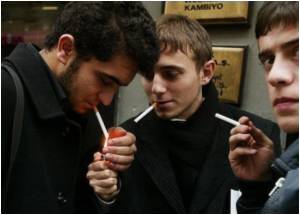
Thousands of pilgrims travel to the sprawling Pashupatinath temple complex in Kathmandu every year from all over Nepal and India to mark the occasion, which is known as Shivaratri.
At one time the government even used to provide marijuana for the occasion, but authorities said they decided to enforce a ban on holy men selling the drug because of complaints they were dealing to local people.
"The holy men are free to use the drugs for themselves. But they can't sell it to others," said Narottam Vaidhya of the Pashupati Area Development Trust, which looks after the temple complex.
"Not all the sadhus are holy men and some come with bad intentions. Our aim is to prevent people from posing as holy men in order to break the law," he told AFP.
Vaidhya said armed police, some of them in plain clothes, had been deployed to the area to look out for anyone breaking the law ahead of Wednesday's celebrations.
Advertisement
Sadhus, who renounce all worldly possessions and usually live in caves or temples, have been coming to Kathmandu for hundreds of years to celebrate the festival.
Advertisement
Shivaratri is a public holiday in India and Nepal, where all government offices and schools are shut for the day.
Huge camps are set up to accommodate the visiting sadhus, many of whom arrive weeks ahead of the celebrations.
Source-AFP













